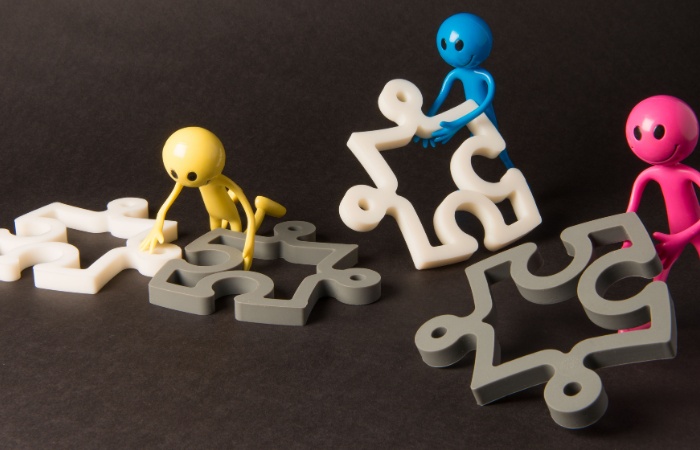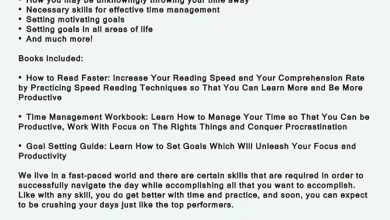Why Is Critical Thinking Important For Problem Solving And Decision Making?

Critical thinking is a skill that is essential for effective problem solving and decision making. It is the ability to analyze and evaluate information logically and systematically, using reason and evidence to form informed judgments.
In this article, we will explore why is critical thinking important for problem solving and decision making, the benefits of developing critical thinking skills, and the barriers that hinder our ability to think critically.
We will also provide tips and strategies for developing and applying critical thinking skills in real-world scenarios. By the end of this article, you will have a deeper understanding of the importance of critical thinking and the role it plays in our everyday lives.
Why Is It Important To Develop Critical Thinking Skills?
Developing critical thinking skills is vital for success in both personal and professional life. Here are some reasons why:
- Effective Problem Solving: Critical thinking enables individuals to approach problems systematically, evaluate all available information, and come up with practical solutions.
- Better Decision Making: By using critical thinking to evaluate different options, individuals make better decisions based on evidence and reason rather than emotions or biases.
- Improved Communication: Critical thinking enables individuals to express themselves more clearly and better understand others by evaluating and interpreting information.
- Enhances Creativity: Analytical thinking encourages individuals to think outside the box and explore new solutions to problems, leading to more innovative ideas.
- Better Judgment: Individuals develop more informed judgments and make sound decisions by evaluating information and arguments.
- Effective Teamwork: Critical thinking allows individuals to contribute meaningfully to group discussions and work collaboratively towards a common goal.
Why Is Critical Thinking Important For Problem Solving And Decision Making?
Critical thinking is crucial for effective problem-solving and decision-making in various aspects of life. It involves using analytical, reflective, and creative thinking skills to gather and evaluate information, identify potential solutions, and make informed decisions.
Analytical thinking skills help individuals navigate complex situations, overcome decision fatigue, and make sound choices. It is essential for success in careers, personal relationships, and life.
By applying critical thinking techniques, collaborative decision-making, and consensus-based decision-making, individuals can develop innovative solutions to various issues. Developing critical thinking skills also helps individuals overcome common barriers to critical thinking, such as irrational thinking and choice overload.
How Critical Thinking Contributes To Effective Problem Solving And Decision Making?
Critical thinking is a cognitive process that involves analyzing information, evaluating arguments, and making informed decisions. It contributes to effective problem-solving and decision-making in the following ways:
- Analytical Thinking: Critical thinking involves analyzing information systematically, breaking down complex problems into smaller parts, and evaluating evidence to draw sound conclusions. This helps individuals approach problems and decisions with a clear and rational mindset.
- Creative Thinking: Critical thinking also involves generating innovative solutions and thinking outside the box. It helps individuals identify new and creative solutions to problems that have not been considered.
- Reflective Thinking: Critical thinking involves reflecting on one’s beliefs, assumptions, and biases and considering how they affect problem-solving or decision-making. This helps individuals avoid making decisions based on irrational or unfounded beliefs.
- Effective Communication: Analytical thinking skills also involve effective communication, such as conveying ideas and arguments, listening to other’s perspectives, and asking clarifying questions. It helps individuals communicate effectively with others during the problem-solving and decision-making process.
- Learning And Knowledge: Critical thinking involves actively seeking out and evaluating information from various sources, leading to a deeper understanding of the problem or decision. This helps individuals make more informed decisions and arrive at well-thought-out solutions.
How Critical Thinking Skills Have Helped People In Their Personal And Professional Lives?
Critical thinking skills have become increasingly important in personal and professional settings, helping individuals make more informed decisions, solve complex problems, and achieve greater success in their endeavors. Now we will highlight how critical thinking skills have helped people in their personal and professional lives :
- Doctors use critical thinking skills to diagnose a patient’s symptoms and develop a treatment plan.
- A teacher who uses critical thinking skills to design engaging lesson plans that promote student learning.
- Business executives who use critical thinking skills to analyze market trends and make informed decisions about company strategy.
- A scientist who uses critical thinking skills to design experiments and interpret data.
- Lawyers who use critical thinking skills to evaluate legal arguments and make persuasive cases in court.
- An engineer who uses critical thinking skills to design innovative solutions to complex problems.
What Are The Barriers To Critical Thinking?
Critical thinking is a valuable skill, but it is not always easy to apply. One of the biggest challenges to critical thinking is the presence of barriers that hinder our ability to think clearly and logically. Here are the barriers to critical thinking:
- Confirmation Bias: The tendency to favor information that confirms our preexisting beliefs and ideas.
- Emotionally-Driven Thinking: Allowing emotions to cloud judgment and decision-making.
- Lack Of Information Or Knowledge: Not having enough information to make an informed decision.
- Stereotyping And Prejudice: Making assumptions and generalizations about people or situations without considering all the facts.
- Narrow-Mindedness: Refusing to consider other perspectives and ideas.
- Over-Reliance On Authority: Blindly accepting information from an authority figure without questioning it.
How To Overcome Barriers To Critical Thinking?
Overcoming barriers to critical thinking involves a combination of strategies and techniques that individuals can use to improve their ability to think critically. Below are some examples:
- Identify And Challenge Assumptions:One of the most significant barriers to critical thinking is our own assumptions. Identify and challenge your assumptions by asking yourself questions like “why do I believe this?” and “what evidence do I have to support this belief?”
- Seek Out Diverse Perspectives: Expose yourself to diverse perspectives and ideas by engaging with people who have different viewpoints. This helps you expand your thinking and challenge your own biases.
- Practice Active Listening: Listening to others without judgment or interruption helps you understand their perspective better and improve your critical thinking skills.
- Use Logic And Reasoning: Utilize logical reasoning skills to evaluate information and arguments. This helps you identify fallacies and inconsistencies in thinking.
- Develop Creative Thinking Skills: Develop your creative thinking skills by engaging in activities that promote imagination, such as brainstorming, mind mapping, and role-playing.
How To Apply Critical Thinking Skills In Real-World Scenarios?
Real-world scenarios demand critical thinking skills to tackle complex problems and make informed decisions effectively. The following are some strategies to apply critical thinking skills in various situations:
- Identify The Problem: First, you need to identify the problem you want to solve or the decision you need to make. This step involves gathering information and analyzing the situation.
- Gather Information: Next, you must gather relevant information about the problem. This includes data, facts, opinions, and perspectives from different sources.
- Analyze The Information: After you have gathered the information, you need to analyze it using critical thinking skills such as evaluation, interpretation, and inference. This will help you identify the key issues, underlying assumptions, and potential biases.
- Evaluate Options: You can identify potential solutions or opportunities based on your analysis. Evaluate each option based on its advantages and disadvantages.
- Make A Decision: After evaluating the options, make an informed decision considering all the information and critical thinking skills you have applied.
Conclusion
This article highlights why is critical thinking important for problem solving and decision making processes. By providing insights into different essential thinking skills, we aimed to encourage our readers to develop their critical thinking abilities.
Critical thinking is an essential skill for problem-solving and decision-making. It allows us to evaluate information, analyze different perspectives, and make informed decisions. Developing critical thinking skills takes time and effort, but the benefits are worth it.



